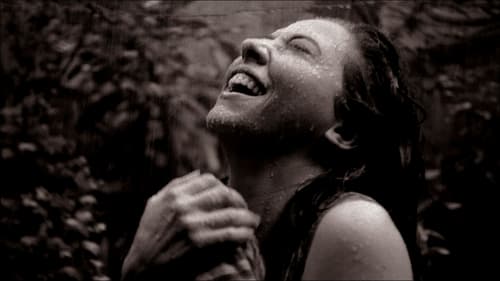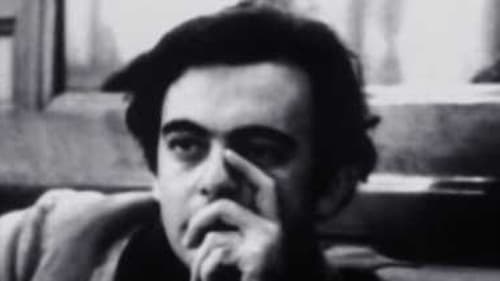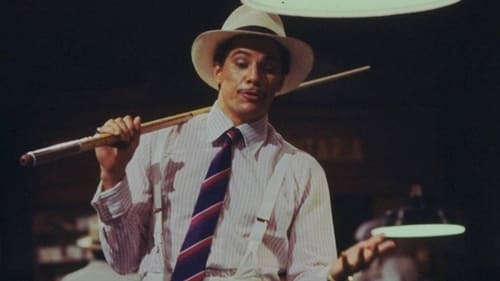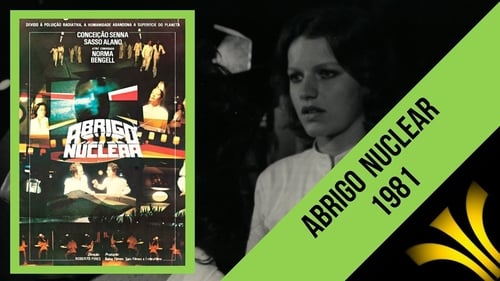Orlando Senna
Birth : 1940-04-25, Lençóis, Bahia, Brasil

Himself
O AMOR DENTRO DA CÂMERA is an essay documentary that tells the story of Conceição and Orlando Senna, pioneers of Audiovisual, who live a romance of almost 60 years, crossed by the History of cinema and Latin America. Intimate and metalinguistic, portrayed in the warmth of the home and through archival materials, when telling a love story, it takes us through the cinematographic and political networks that have woven across the continent.

In 1965, a year after the military coup in Brazil, an oasis of freedom opened in the country's capital. The Brasília Film Festival: a landmark of cultural and political resistance. Its story is that of Brazilian cinema itself.

Associate Producer

Screenplay

Director

himself
In a small island convulsed by the 1959 revolution, Santiago Álvarez used the Seventh Art as a political weapon and created an aesthetic that became a reference in the documentary field. Santiago, who called himself a permanent traveler through history, registered the most significant facts of his time, from the Cuban Revolution to the disintegration of the Soviet Block. He took to spectators from all continents a counterpoint to the history narrated by the United States Information Service, USIS. Through his works, we dive into the Cuban political and cultural scene, the tensions of Latin America, the Vietnam War, the countless conflicts for African independence, always with a peripheral look that is characteristic of his cinema, currently converted into a memory of a world in transformation.

Screenplay

Director

Writer
The film warns us about the world's water crisis and the international greed for the Amazon Forest, the largest fresh water reservoir on the planet. In addition to concentrating 20% of the world's drinking water, the Amazon is the region with the greatest chance of maintaining its water sources in the next decades, thanks to the humidity of its forest.

Director
The film warns us about the world's water crisis and the international greed for the Amazon Forest, the largest fresh water reservoir on the planet. In addition to concentrating 20% of the world's drinking water, the Amazon is the region with the greatest chance of maintaining its water sources in the next decades, thanks to the humidity of its forest.

Self - Filmmaker (archive footage)
A deep investigation, in the way of a poetic essay, on one of the main Latin American movements in cinema, analyzed via the thoughts of its main authors, who invented, in the early 1960s, a new way of making movies in Brazil, with a political attitude, always near to people's problems, that combined art and revolution.

Self

Ele mesmo
Since the 1970s, Roberto Pires has militated against the use of nuclear energy. For that, he went looking for the biggest Brazilian name in this subject, César Lattes, professor of Nuclear Physics at UNICAMP. Believing that nuclear energy could, in the long run, extinguish human life. With the collaboration of Orlando Senna, he writes the screenplay for the film “Abrigo Nuclear”, an ambitious production, science fiction film entirely produced and shot in Bahia. With little money, armed with his creative ability, Roberto builds a 'spaceship' and a studio in the backyard of his house. He calls children, relatives and friends and begins production on “Nuclear Shelter”, which is released in 1981.
With statements by Orlando Senna, Laura Pires, Nonato Freire, among others, the documentary "Bahia SCI-FI" intends to explore the universe that surrounded Roberto Pires, Bahia and the possible nuclear war of the late 1970s and early 1970s. 1980.

Ele mesmo

Himself
A panorama of Brazilian popular music from the 60s and 70s through the musical group Novos Baianos. A retrospective of the community lifestyle adopted by its members and the influence inherited from singer João Gilberto.

Ele mesmo

Self
Documentary about the 68-generation, told through the story of the newspaper “O Sol”, one of the first vehicles of the alternative Brazilian press, produced daily for six months, in the 1960s. The newspaper spoke of culture, politics and education through satires and prominent figures in the cultural scene of the time passed through him. Archive scenes and music from the period seek to reconstitute the spirit of the 68-generation. The film has the participation of personalities such as Ziraldo, Zuenir Ventura, Arnaldo Jabor, Chico Buarque, Caetano Veloso, Carlos Heitor Cony, Fernando Gabeira, Betty Faria, Hugo Carvana, among others.

The documentary "Depois do Transe" covers the entire process of creating the masterpiece "Entranced Earth", which was released and awarded at the Cannes Film Festival in 1967. "Entranced Earth" charmed the world and won great admirers such as filmmaker Martim Scorsese and the writer Marguerite Duras, who at the time considered a "fabulous filmic opera."

A documentary short on Tempo Glauber, a foundation created by filmmaker Orlando Senna and Glauber Rocha's mother Lucia in order to celebrate and preservate her son's legacy.

Ele mesmo

Ele mesmo

Script Consultant
Documentary about Brazilian filmmaker Glauber Rocha, one of the most important names in the Cinema Novo, with interviews with some of his friends and colleagues.

Documentary about Brazilian filmmaker Glauber Rocha, one of the most important names in the Cinema Novo, with interviews with some of his friends and colleagues.

Screenplay
As Carmen prepares to marry for the fourth time, her three sisters find themselves juggling romantic predicaments of their own in this offbeat comedy from Brazil.

Screenplay

Screenplay
The last few months in the life of María Elena Moyano, who was killed at the age of 33 by the Peruvian revolutionary movement Sendero Luminoso.

Director
Documentary that celebrates 100 years of cinema in Latin America and talks about the origins and the development of cinema in this subcontinent. Its structure is based in 12 short films directed by various Latin American directors. These are: 1) "Los inicios", Iván Trujillo 2) "Cuando comenzamos a hablar", María Novaro 3) "Jugando en serio", Jacobo Morales 4) "De cuerpo presente [Las espirales perpetuas del placer y el poder] Cine Mexicano [1931- 1997]", Marcela Fernández Violante 5) "Cuando quisimos ser adultos", Edmundo Aray and David Rodríguez 6) "Cinema Novo", Orlando Senna 7) "Memorias de una isla, Juan Carlos Tabío 8) "Un grito, 24 cuadros por segundo", Julio García-Espinosa 9) "El día de la independencia", Federico García 10) "¿Sólo las formas permanecen?", Fernando Birri and Pablo Rodríguez Gauregui 11) "Todo final es un principio", Andrés Marriquín.

Writer
Edipo, is appointed mayor of a town plunged in misery and violence. His first mission is to discover and punish the murderers of Layo, a well-known potentate of the region. His investigation is directed towards all the armed factions that exist in Colombia.

Screenplay

Writer

Writer

Director

Writer
In Rio de Janeiro's bohemian district called Lapa, during the '40s, a stylish and popular scoundrel exploits a cabaret singer, and earns his living by means of petty swindles. But then he meets Ludmila, the cabaret owner's daughter, who wants to get rich smuggling goods in times of war.

Screenplay
Our planet was contaminated by many nuclear explosions that left the soil and the air filled with radiation, and now the few survivors of those catastrophic events live under the ground on a shelter controlled by scientists. After an incident inside the shelter, a group of rebellious scientists defy their leadership when they find a good possibility of returning to the surface. (IMDb)

Writer

Screenplay
In the beginning of the 20th Century, in the Northeast of Brazil, one of the first Brazilian industrialists is persecuted because he refuses to sell his business to a British company.

Screenplay

Director

Production Coordinator

Writer
Documentary-manifest in defense of the inclusion of the Brazilian short film in the national cinema circuit, accompanying each foreign feature film as a market reserve

Writer
Sought after by several reputable women, a bohemian becomes obsessed with a prostitute.

Producer
A girl from the countryside goes to the city of Belém to take part in the Círio de Nazaré celebrations. Led to prostitution, she wishes to move to the wealthiest Southeast region of Brazil. In a dance club, she meets a truck driver that transports wood. Dreaming with the big city, she asks for a ride, and the two begin a journey through the Trans-Amazon road. In tension with the Brazilian military authorities of the time, the film registers several aspects of the Amazon social tragedy – forest fires, slave work and child prostitution. Awarded in several international festivals, the film was forbidden by the Brazilian censorship. It was only released years later, winning the Brasília Film Festival in 1981.

Art Direction
A girl from the countryside goes to the city of Belém to take part in the Círio de Nazaré celebrations. Led to prostitution, she wishes to move to the wealthiest Southeast region of Brazil. In a dance club, she meets a truck driver that transports wood. Dreaming with the big city, she asks for a ride, and the two begin a journey through the Trans-Amazon road. In tension with the Brazilian military authorities of the time, the film registers several aspects of the Amazon social tragedy – forest fires, slave work and child prostitution. Awarded in several international festivals, the film was forbidden by the Brazilian censorship. It was only released years later, winning the Brasília Film Festival in 1981.

Writer
A girl from the countryside goes to the city of Belém to take part in the Círio de Nazaré celebrations. Led to prostitution, she wishes to move to the wealthiest Southeast region of Brazil. In a dance club, she meets a truck driver that transports wood. Dreaming with the big city, she asks for a ride, and the two begin a journey through the Trans-Amazon road. In tension with the Brazilian military authorities of the time, the film registers several aspects of the Amazon social tragedy – forest fires, slave work and child prostitution. Awarded in several international festivals, the film was forbidden by the Brazilian censorship. It was only released years later, winning the Brasília Film Festival in 1981.

Director
A girl from the countryside goes to the city of Belém to take part in the Círio de Nazaré celebrations. Led to prostitution, she wishes to move to the wealthiest Southeast region of Brazil. In a dance club, she meets a truck driver that transports wood. Dreaming with the big city, she asks for a ride, and the two begin a journey through the Trans-Amazon road. In tension with the Brazilian military authorities of the time, the film registers several aspects of the Amazon social tragedy – forest fires, slave work and child prostitution. Awarded in several international festivals, the film was forbidden by the Brazilian censorship. It was only released years later, winning the Brasília Film Festival in 1981.

Santana

Writer

Director

The adventures of a gang of thieves and murderers led by violent Caveirinha. A radical disruption proposal from the postulates of the Cinema Novo, a film with a loose narrative structure. Through the actions of a group of outlaws, the director sews in scenes that propose iconoclasm and elation as forms of opposition to the military dictatorship oppression.

Producer
The adventures of a gang of thieves and murderers led by violent Caveirinha. A radical disruption proposal from the postulates of the Cinema Novo, a film with a loose narrative structure. Through the actions of a group of outlaws, the director sews in scenes that propose iconoclasm and elation as forms of opposition to the military dictatorship oppression.

Assistant Director
The psychology and life of Brazilian hitmen, common in the Northeast part of the country. In this particular case, the story revolves around a young and idealistic politician from Salvador, whom the enemies are eager to eliminate.

Convidado na festa
The psychology and life of Brazilian hitmen, common in the Northeast part of the country. In this particular case, the story revolves around a young and idealistic politician from Salvador, whom the enemies are eager to eliminate.

Frequentador da Gafieira
Made in the famous "Água de Meninos" market, the greatest popular market in Salvador, Bahia, Brazil. Salvador is revealed without prejudices, from the world of high finance up to the sordid environment of exotic cabarets.




























